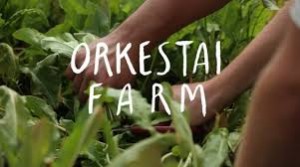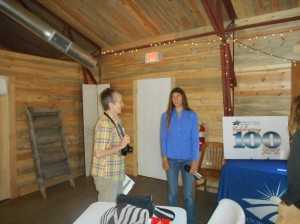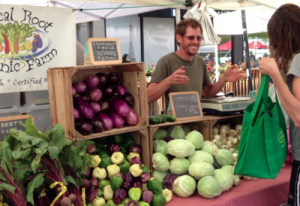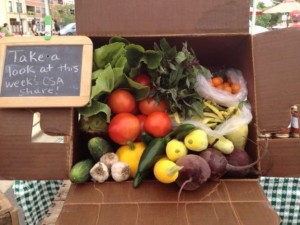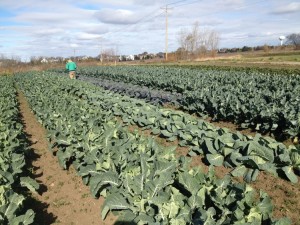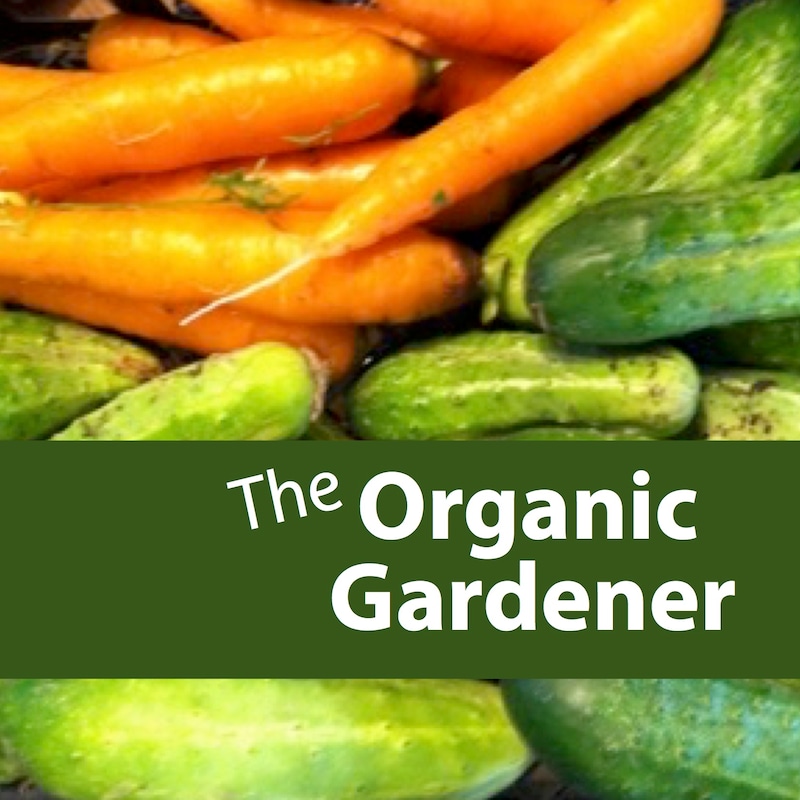
Shownotes
The Radical Root Farm is a small family farm located in Libertyville, Illinois north of Chicago. Radical Root Farm has a unique story because they got started by graduating from the Farm Business Development Center at the Prairie Crossing Farm and the Liberty Prairie Foundation.
Tell us a little about yourself.
My name is Alison Parker, I run and co-own Radical Root Farm, along with my husband. We are a small certified organic farm just north of Chicago. We grow about a little under 14 acres. We do vegetables, organic vegetables, we keep bees so we have honey. We also have pastured chickens for eggs, that’s what we do primarily right now, we are hoping to expand our livestock operation a little bit but we run a CSA and do a Farm Stand and we also do a Farmer’s Market in Chicago.
We started farming… First we started working on farms and get our feet wet and see if we liked it. We decided to start our own business about 7 years ago, but we didn’t know how to go about doing that. We didn’t have any equipment or land or anything to do it with it, so it was a blessing we got hooked up with a farm incubator program, there aren’t so many programs like this in the midwest, more popular on the east or west coasts, so it’s a little unusual to have in the midwest. It is ideal for people who don’t have farm or equipment, it helps people who want to start an organic farming business, but don’t have anything to help them do that. So you rent the land, and all the equipment from this program, the idea is that you rent everything and they give it to you at reasonable price. Help you grow your business over the years, for about 5 years you’re in this program. At the end of 5 years, most programs want you to move on from the program.
Ideally you buy land. A lot of farmers I think are like this, they don’t have enough income to actually buy land, so we didn’t have enough to buy land, so we got this opportunity. We are renting from a conservation organization that saved this 100 year old farm from being developed and so they asked us to be the farmers on the land. So we are able to live on the land, we are renting the farmhouse, and the farm land and we rent the barn, from them. It’s an ideal situation for us, so we have a long term lease now, where we can stay indefinitely, but we didn’t have to have that up front cost of purchasing anything. So we’re still renting but it’s a little more stable situation, where it’s much more permanent. The incubator program is very non-permanent, you don’t want to plant perennials you know
And trees?
It’s so temporary, so we’re able to do a lot of our permaculture projects we’ve been wanting to do for a long time, because we knew we were staying for a long time. It’s a unique situation then a lot of people we know. It’s been good for us.
One of my most popular episodes is one with Erin and Alethea on the Orkestai Farm, they are kind of a similar situation They are on a place called the Planting Fields. Which is interesting because having growing up in NY, I have been there, many times, it’s a State Park. It’s a similar story, where they were asked to run it, too. Interesting a Farming Incubator. That’s where most of my listeners are actually from, because you know Y-Combinator is the biggest business incubator in California, but it’s a big state with good farming weather.
Midwest is a little slower from the East Coast or West Coast. I think the coasts are more progressive. Around Chicago, the organic farming pool is just small, I’m sure in California it’s much higher. You would know more organic farmers.
Hopefully that’s another thing that’s change and this woman Liz Carlisle studied the transition in her book Lentil Underground she studied farmers in Iowa, if we know organic practices are more profitable and they are better for the land why are farmers not making this transition. And Maria Rodale also wrote an interesting piece about the transition. Kudos for you guys being innovators and going for it! So I just have to ask if you’re a millennial?
I don’t think so.
I talk a lot about the millennials and how they are really socially conscious and caring for our environment. I count you in there as one of those changing the world millennial’s.
Tell me about your first gardening experience?
Originally I’m not, we did move up here from the south a little before high school, I did spend a good amount of time in the county I am in now. I didn’t grow up in any kind of household that really emphasized things I’m into now, like healthy living, environmentalism, and organic gardening, I wasn’t really brought up in that because my parents just weren’t particularly into that.
My first gardening experience in college. I went to Evergreen State College in Washington State. That was eye-opening, I was pulled towards environmental activism, that school brought it out to me, I was doing things like I was going to Earth First meetings, and I was doing some volunteer work, the programs I was in emphasized ecological writing. I thought that was gonna be my main focus.
They have this really cool permaculture garden at the school. I had never heard of permaculture before, I was unfamiliar with that concept at that time. I started researching on my own. I got sort of interested at the same time, with food, growing food, for sustainability reasons, for health reasons, for environmental reasons and ecological growing, and it kind of stemmed from there. I started volunteering on farms for a while after college. Then I started really getting more serious after that. My first experience was as an adult. Volunteering on that farm, and just getting really interested Got more experience after that. I was volunteering on that farm and in the politics behind it, everything related and everything I’m interested. Definitely a late comer to it.
Really, you’re leaps and bounds ahead of me! I didn’t hear about Permaculture until I started this podcast last spring but on the flip side my Earth Day Guest was Heather Wood who is also a graduate from Evergreen College in Washington.
What does organic gardening/earth friendly mean to you?
As our philosophies on organic gardening has been, we don’t want to just be chemical- free farmers, that’s what we are, we’re chemical free but we want to be more then that. Our philosophy is really growing within a permaculture concept. Where we are growing ecologically in a way that we are creating a habitat for beneficial insects as well as growing food! We do things like permanent raised beds in our fields, and our bees are really important, obviously for honey, is nice, we really want the bees to try to protect the bees, and nurture that ecological system within our farm. I consider ourselves more holistic beekeepers, where we’re not giving them sugar water because we’re stealing all their honey, we’re leaving them enough honey for the winter, because that’s more nutritious for them, the environment comes first before other things. We are always constantly trying to think of ways we can do this. Thats why along with vegetables we do plant beneficial and native plants as well.
We do borders like that. We have a food forest that is on the property, that we have been trying to establish, a lot of native plants, as well as perennials and fruit trees. We do it not in an orchard or row, using forest architecture is the idea. So we are trying to plant fruit trees and nut trees in a forest way instead of a traditional orchard row way. Within that food forest we see tons of things like monarchs, which we are always trying to think about. Trying to save these endangered insects and wildlife as well, and native plantings too.
We are always thinking and really try concentrate on the soil as well. Always trying to think of soil fertility, we get field tests every year, not just compost, but also adding the trace minerals, and what different things we are low in, we are always trying to create a very fertile balanced, trace mineral heavy fertile soil. So that creates such healthy plants, they do not have these diseases and pests, even on organic farms a lots of times organic are heavy with pests or disease.
So our methods are just really concentrate on the soil, create these really strong healthy plants, and promoting health in the in the community. The nutritious plants that start from the ground up… that’s basically our philosophy. We don’t want to just be don’t want farmers.
Real stewards of the land! I love it, I know my listeners are going to love it! And enjoy it as much as I am listening.
How did you learn how to garden organically?
We’re really self taught in a lot of ways, we try to do as many classes and conferences as we can, we read a ton, especially in the winter. What’s nice about organic farming, is it’s really good for people who love research! We’re constantly learning things, we’re constantly researching things, helpful in the beginning to work on other farms and gain knowledge from people who have been farming for some time. Those things have really helped us along the way.
Tell us about something that grew well this year.
So, each year has been pretty different, this is our 7th year. Each season has been pretty different. This year was an interesting year, where it was really wet, towards the beginning and towards the end. Yes, towards the beginning, middle was really wet, and it was cooler this year as well. So our greens and our brassicas did great! Our kale, our dandelion greens, our asian greens, bok choy all those plants did really well! Right now we are getting a great broccoli harvest. We’re still getting great broccoli out of the farm! The greens have have been really happy with those conditions.
I just picked my last cauliflower the other day, probably if I had more they’d still be growing. The later in the season the better things did.
Is there something you would do different next year or want to try/new?
We haven’t had enough space strapped, so we are actually going to be renting another plot and growing heirloom melons, which we haven’t actually done before , haven’t grown melons much before. There’s been a farmer near us, they grow melons that we have brought in before. This year we are gonna grow our own so I’m excited about that because I really love melons.
You said you have 14 acres and you’re expanding it. So how many CSA shares are you getting close to?
A little under 200 members for a CSA.
Wow! Is it just you and your husband? You must have help.
It’s a good size. We have 6 employees, I’m not sure if we are gonna have more and then we have 3 worker shares, kind of like volunteers who work for a few hours and get their CSA share as well. Kind of a volunteer program then you’re a CSA member as well.
Tell me about something that didn’t work so well this season.
We it was not a good tomato year for this area, in general. We’re still kind of new on this land, and seeing there are wetter spots on the land, but we’re trying to figure out the land. So we put the tomatoes in an area that was pretty wet, so we thought it was a good location at the right time, but the location it just wasn’t ideal for them. At one point, when we had one of our heavy rains, they were in standing water for a while which pretty much made them putter out pretty quickly after that. That was sort of disappointing. I think we’re always hoping for a good tomato year.
We did have enough for the CSA and had enough to can, and we had some for farm stand, but not many. Usually we have pretty good tomato years but just not this year.
It was a really wet year right?
They weren’t gonna be happy no matter where they were, they definitely would have struggled anywhere but they weren’t in the right place.
Something that you find is easy to grow and is generally successful every-time.
I’d say probably pretty successful, even when it’s not ideal for greens, we’re usually pretty good at growing the greens, especially kale. We grow a lot of kale, and other greens as well. We do do a lot of kale, and kale’s pretty popular still, at the farm stand and the CSA. So I think that we’ve often pretty good in general, because we’ve had to be a diversified vegetable farm because of the Market and CSA. We’ve gotten pretty good at timing things right and having a really diverse box every week. I don’t even know what our best crop would be? We do pretty good, at making it pretty diverse every week.
I think that’s inspiring for listeners, because I think a lot of people who worry what about when things don’t go right but when you say things are going well overall, it inspires people to give it a try.
I say also I attribute it to how much time and emphasis in our soil. We will be selling carrots or beets and people are amazed at how big they are and good they are. How’ you get them so big?
And healthy!
I tell them, “the soil is really good!” It’s the energy we put into the good soil that helps with everything!
Something you would steer new gardeners away from that you find is typically challenging to grow in your climate
I thought about this question, Idk I would steer anyone away from anything. We did, last year we grew ginger and turmeric. It’s a little trickier here, we’re in the upper midwest, its a very short growing season here, so it’s a little trickier to do here, maybe then where the climates are a little warmer. The ginger and turmeric we grew in the greenhouse, so they were warm, they were covered, we did have to do some special things to it, if you can grow things like that and if you really put the energy and time into making the ground fertile and things like that. I can’t really think of a plant I’d steer people away from. Even a difficult plant like we planted some pawpaw trees, it’s a fruit that grows in the midwest. But they are notorious for being difficult to grow.
Does it have a fruit? OK, you said it has a fruit.
People call it a midwest banana, this yellow custardy, they’re really good but farmers are always complaining that they are hard to grow. If you put enough energy into it. For example, our food forest has permaculture conditions. To take care of the tree, planting comfrey around the tree base which helps the nutrients can climb the tree better. Things like that put the emphasis in the plant health enough, it’s not impossible to grow much around here. We’re always trying to think how we can, the colder climate, how can we eat locally around as much of the year as possible.
Follow
